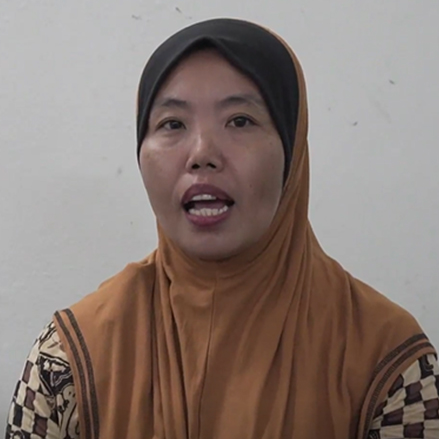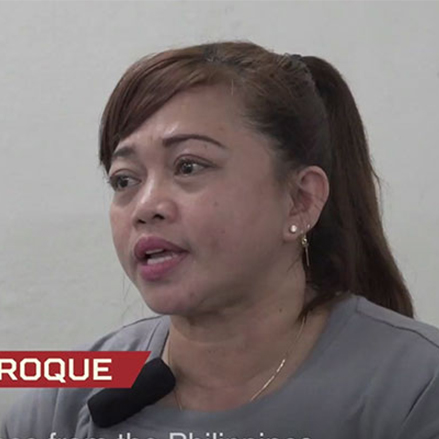Challenge
Remittances have an important role in a country’s development. They are a key source of external development finance for many developing countries, contribute to poverty reduction and improve social welfare. ASEAN as a region has more than 21 million nationals living abroad and is home to more than 10 million migrants. More than 2 million of these migrants live and work in Malaysia. Their families – mostly in Indonesia, Bangladesh, Nepal, India and the Philippines – depend on the money that they send home to school their children, pay for medical care, build homes and generate other sources of income.
Unfortunately, many migrant workers are unable to access formal remittance channels to guarantee a safe transfer of earnings. Remittance costs can be high, reducing the amount of hard-earned money going to migrant families and so that migrants keep more of their hard-earned money and finally, illegal, unauthorized service providers can reduce trust in the system.
Approach
Project Greenback 2.0–Kota Kinabalu, in the Eastern Malaysian state of Sabah is the product of a partnership between the World Bank and Bank Negara Malaysia, aimed at supporting the development of an efficient and transparent remittances market
The project has increased efficiency in the market for remittances through an innovative approach: promote change inspired by the real needs of the ultimate beneficiaries of international money transfers: the migrants and their families at home.
The project adopted four strategies to address the identified challenges: 1) Promoting technology and digital experience for wider reach, 2) more targeted engagement with Indonesian and Filipino workers and communities, 3) greater collaboration and scope covering financial education and inclusion, and 4) leveraging industry driven initiatives.
Activities targeted at migrant worker hotspots promoted end-to-end digital services, including opening of bank accounts and registration for Electronic Know-Your-Customer or “e-KYC” (electronic solutions that help establish business relationships and conduct customer due diligence) and e-remittance services; and financial education programs to enhance knowledge of financial products and financial management.
The Greenback 2.0 project delivered remittance services to users in remote areas, coupled with financial education in partnership with industry and local companies and communities.
Project Greenback 2.0 Kota Kinabalu builds on the successful implementation of Greenback 2.0 in Johor Bahru, Malaysia.
Results
Over the course of the project, the cost of sending remittances in Sabah was reduced from 4.5 percent in December 2017 to 2.2 percent in September 2019. A 1 percent reduction in remittance costs translates into US$5.9 million (RM24 million) additional money in the hands of migrant workers. During the project period, over US$31.1 million (RM126 million) was saved. The savings ensured that migrant workers take home more of their hard-earned pay for their family’s development.
Malaysia became one of the first countries that achieved Goal 10 of the Sustainable Development Goals. This Goal aims to reduce inequality within and among countries by reducing the average cost of remittances to 3 percent by 2030 and eliminating remittance costs higher than 5 per cent
The project team and partners reached out to over 16,000 migrant workers and local communities, out of which around14,000 migrant workers registered for new electronic remittance accounts. This led to a significant increase of e-remittances with turnover greater than 650 percent.
The team implemented promotional activities at targeted migrant worker hotspots (e.g. plantation estates) to promote end-to-end digital services, including opening of bank account and registration for e-KYC and e-remittance services and undertook financial education program targeted at migrant communities to enhance knowledge of financial products and prudent financial management.
Project Greenback 2.0 used a creative and innovative approach in fostering a more efficient remittance market. In Sabah, the Project Team experimented with using incentives to nudge behavioral changes in helping the target market to use regulated remittance channels.
The achievements of digital remittances in Greenback 2.0 enabled remittance companies to continue to provide digital solutions during the recent COVID-19 lockdown period when many remittance outlets were closed.
Bank Group Contribution
International Bank Reconstruction and Development with the Malaysian government, financed select activities via the country’s Office Service Agreement – providing technical resources and outreach events. BNM also financed its own staff, travels and engagements.
Partners
The project was a joint project undertaken by Bank Negara Malaysia and the World Bank in partnership with the Malaysian Association of Money Services Business, remittance companies embassies and consulates, and plantation companies and community groups to expand digital remittances to migrant workers by promoting innovative and digital remittance services. Greenback 2.0 Ambassadors (selected employees of remittance companies)– played a critical role in communicating key information in local languages.
Moving Forward
Greenback 2.0 Kota Kinabalu was implemented following the successful completion of Greenback 2.0 in Johor Bahru.
Project Greenback 2.0 aims at increasing efficiency in the market for remittances through an innovative approach: promote change inspired by the real needs of the ultimate beneficiaries of international money transfers: the migrants and their families at home.
In Project Greenback 2.0, Remittance Champion Cities continue to be selected worldwide. The World Bank works to implement initiatives aiming at increasing transparency and efficiency in the market for remittance services. The focus is on migrants and their needs. Cooperation between migrants, remittance service providers, and public authorities is key for the achievement of the Project’s objectives.

